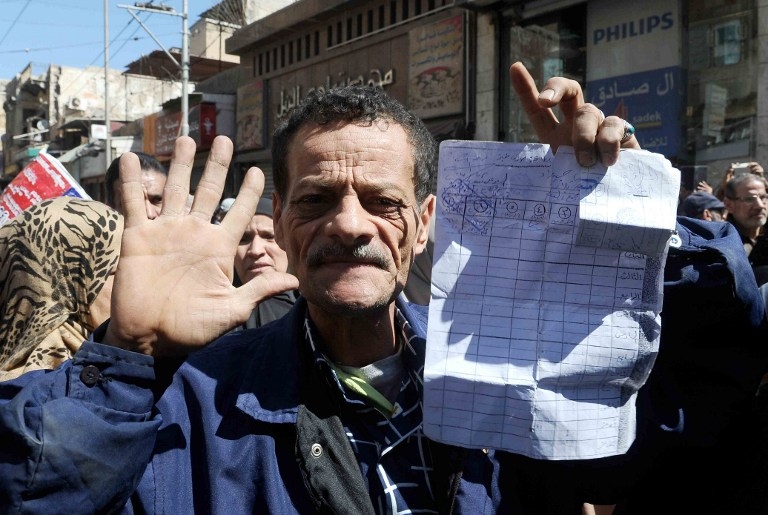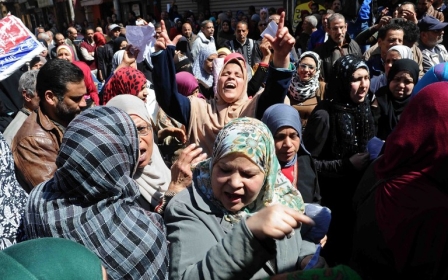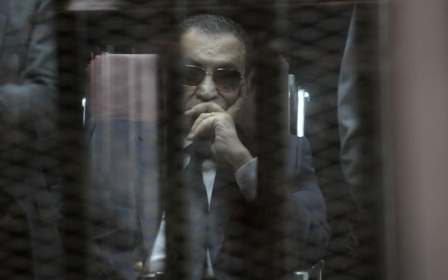Egypt's inflation rate hits 30-year high amid bread shortages

Egypt's annual inflation rate has hit 31.7 percent, figures for February show, as the government battles protests over bread shortages and a deepening economic crisis.
Inflation has soared since the floatation of the Egyptian pound and the slashing of fuel subsidies by President Abdel-Fattah el-Sisi in November, as part of a series of economic reforms necessary to secure a bailout loan of $12bn from the International Monetary Fund.
The currency has since depreciated by roughly half, while social tensions are increasing.
"This is the highest inflation rate recorded in more than 30 years," said Amr Adly, a postdoctoral fellow at Stanford University's centre on democracy, development and the rule of law.
"It is quite dramatic and high inflation is persisting despite the deepening recession and the recent stabilization in the value of the dollar versus the Egyptian pound."
The government statistics agency, CAPMAS, said on Thursday the monthly inflation increased by 2.7 per cent compared to January, when the spike in prices had already reached 28.1 percent.
Month-on-month changes are slowing down as the effect of the economic reforms fade, according to economists, but purchasing power has taken a blow.
With the country also experiencing a shortage of supplies, the price of food and drink is 41.7 per cent higher than last year. The price of meat and chicken, especially, increased by 5.5 per cent in one month and is now up by 34.6 per cent on a yearly basis.
Egyptians this week staged street protests after the Ministry of Supply announced changes in the bread distribution system on Monday. The government said the changes, which cut the amount of subsidised bread, aimed to stop corruption.
In 2015 the price of a kilo of meat jumped from a few dozen pounds to nearly 100 pounds, sparking anger in the country and a call for a boycott of butchers.
“People are buying half of what they did before, because it’s gotten very expensive,” a butcher in Cairo told AP last month.
The Egyptian pound jumped from trading around nine a dollar before the shock reforms in November, to more than 20 in December. It is now back to about 16 a dollar.
The government and the IMF predict inflation will ease later this year and the currency will get stronger. Investors have recently bought Egyptian bonds and foreign reserves are rising again after having been depleted for years.
The question is whether the economy will improve enough for social tensions to ease.
"The recent figures suggest that Egypt is still suffering from low growth and high inflation (stagflation) in a way not so dissimilar from the flotation of the pound and the IMF package," said Amr Adly.
"This is expected to continue for sometime still until the country receives large foreign currency inflows in the form of investment and tourism, which is something that is not guaranteed as it has to do with a great many factors like security and political uncertainties," he added.
Reforms of subsidies and economic spending have long been delayed by successive Egyptian governments for fear of popular revolts like the 1977 bread riots. While few people question the need for structural economic reforms, the question is how to make them effective while softening the blow to the poorest strata of the population.
With increasing inflation and a fluctuating currency, salaries have not adjusted and more people could soon join the 27.8 per cent of the population who already lives under poverty line.
President Sisi promised a quick economic reform and asked his fellow countrymen to endure for the next six months. Without much room for political dissent, Egyptians have turned to social media to express their anger and cut their spendings.
Middle East Eye propose une couverture et une analyse indépendantes et incomparables du Moyen-Orient, de l’Afrique du Nord et d’autres régions du monde. Pour en savoir plus sur la reprise de ce contenu et les frais qui s’appliquent, veuillez remplir ce formulaire [en anglais]. Pour en savoir plus sur MEE, cliquez ici [en anglais].




